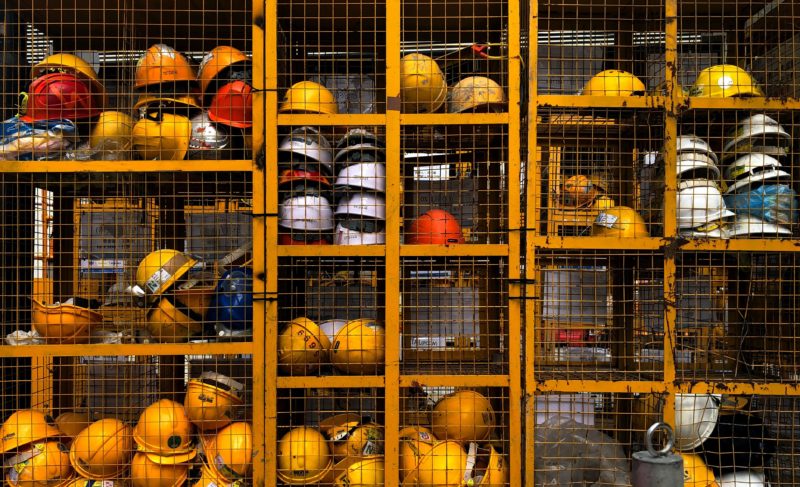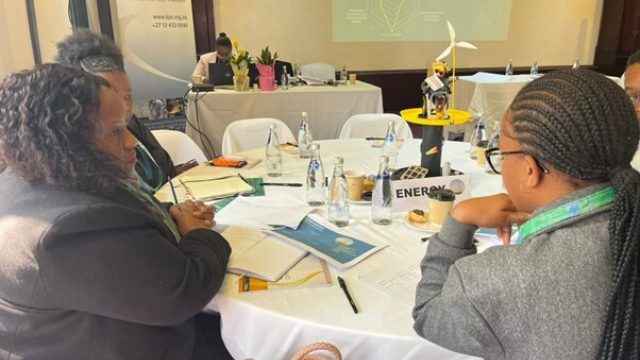How can a Just Transition help protect our climate and biodiversity?
Biodiversity along with climate protection is also a labour issue and a Just Transition is the way to tackle it.

The GEC Insights series is a new curated collection of online articles at the intersection of environment and economics, each written by leading thinkers from the worlds of business, government and civil society. Part of our Economics for Nature project, they bring together diverse perspectives to answer the question: how can we re-design our economies to protect and restore nature?
Hardly anybody will oppose an economic model that aims for social justice and respects labour rights as well as protecting nature and halting the climate crisis. However, we see that greenhouse gas emissions and pollution levels are increasing and biodiversity is declining at a disastrous pace.
The race to fuel economic development by exploiting natural resources is still intensifying. Often, this goes together, and is intrinsically linked with, deplorable social, environmental and labour conditions, especially in the Global South. Human rights are being violated daily, including in countries where plans for energy transitions are being implemented.
This is why biodiversity along with climate protection is also a labour issue. This is why workers and their organisations–the unions–need a place at the table to talk about the solutions and participate in the plans. In short, this is why we need a Just Transition.
Modern colonialism and the race for natural resources
A lot has changed since Belgian King Leopold II seized the Central African Esikongo’s natural resources or since the US legally allowed islands containing the fertilizer guano and discovered by an American to be claimed as US territory through its 'Guano Islands Act'. However, what has not changed is the relentless search for natural resources by (Global North) industrialised countries and transnational corporations–often from the same (Global South) countries as before.
The energy transition adds to this drive for natural resources. The push for agrofuels and especially the need for rare-earth minerals and lithium for batteries that drive electromobility are examples. The impact on democracy and nature is immense in the lithium triangle (Chile-Argentina-Bolivia), putting the unique biodiversity of the Salar de Atacama under threat and even leading to the supporting of coups to get extensive and free access to these resources. And the rights of indigenous peoples living in this area are being trampled on.
This unequal exploitation and extraction of natural resources since Columbus landed in the Americas have brought economic welfare to the North and devastation to peoples and nature in the South. Any sustainability solution* must recognise this context and accept that responsibilities are common but differentiated. For example, the trade unions of the Americas have developed – together with social movements from the region – their alternative vision for the development of the Americas, Plataforma de Desarrollo de las Américas, PLADA, which integrates political, economic, social and environmental rights as well as taking historical contexts into account.
All jobs depend on a healthy environment and the protection of nature
According to research by the International Labour Organization (ILO) published in the “Greening with Jobs” report, 1.2 billion jobs depend on a stable and healthy environment. We think all jobs depend on a stable and healthy environment, yet with the continued exploitation of nature, this is not happening.
The global union movement has been demanding policy changes under the banner “No Jobs on a Dead Planet” since the Rio+20 Conference in 2012. Today we ask for “decent jobs on a living planet”. But what is meant by “decent”? Decent work sums up the aspirations of people in their working lives. It involves opportunities for work that is productive and delivers a fair income, security in the workplace and social protection for families, better prospects for personal development and social integration, freedom for people to express their concerns and organise and participate in the decisions that affect their lives, and equality of opportunity and treatment for all women and men. In summary, it is about quality jobs underpinned by labour rights.
“ A Just Transition leads to social and environmental justice and builds hope and trust in a future that puts people and nature as priorities.”

Just Transition is about social justice as a driver for an ecological transition
The concept of Just Transition, a framework that includes the creation of decent work and quality jobs, has received global recognition in the climate negotiations in Cancun (COP16) and has been included in the Paris Agreement in 2015.
For trade unions, a Just Transition is the pathway to social justice in a sustainable economy transition. It leads to social and environmental justice and builds hope and trust in a future that puts people and nature as priorities. Unions want to ensure that workers lives, wages, security of employment, health, safety, and social protection are guaranteed in economic transition processes.
A basic element contributing to a successful result is social dialogue. Social dialogue can facilitate planning processes based on the right to bargain collectively, reaching negotiated agreements and granting genuine partnership. Governments, worker and employer organisations have negotiated comprehensive guidelines in the International Labour Organization (ILO) that can enable and steer the implementation of a Just Transition and the global union movement has documented many good examples of Just Transition processes.
A Just Transition should be underscored by a new social contract
While Just Transition is a concept that is often associated with workers in fossil fuel industries that are in decline or expected to decline, the concept goes well beyond this. The climate crisis and the alarming loss of biodiversity are affecting everyone on earth. All workers, their families and communities are concerned and impacted.
Together with other movements, such as the gender constituency, indigenous peoples’ representatives and youth groups, workers need genuine participatory mechanisms to decide about their future. At the workplace level and in the economic sectors, this starts with social dialogue, where strong and representative unions negotiate with business representatives and governments about the transition to a sustainable society.
Just Transition is about workers who refuse to be forced to choose between their job and protecting nature and the environment. Just Transition also means confronting the impacts of the digital economy on workers and demanding that employers recognise their responsibilities over their labour force. Guaranteeing social justice and providing decent jobs have to go together with protecting nature and building climate resilience. Social justice provides the foundation of trust for workers and their families.
On a national level this involves the negotiation of a new social contract that includes effective social protection measures for everyone. For recovery from COVID-19 this is more urgent than ever. The union movement is asking for a Global Social Protection Fund of US$37.8 billion to build social protection systems with five years of coverage in the 28 least developed countries.
Autonomy and democratic control of common goods
Finally, it is important to stress that there will be no Just Transition if economic decisions continue to be dominated by globalised finance, which seeks to transform all activities into profit for business. We must question the economic model dominated by austerity and neoliberal policies that transform our common goods into financial assets and commodities. Territories, land, biodiversity, water, seeds, forests, energy, ancestral knowledge, science, care, health and education are common goods. They are not confined to national and local spheres. They are shared across borders and in some cases even have regional and global scope.
To guarantee the sovereignty and self-determination of the peoples over the common goods, instances of democratic participation and decision are required at the local, national and regional levels. Environmental protection measures should not become excuses for the commodification of common goods. Interculturality, recognition of environmental knowledge and practices and protection of our genetic resources against biopiracy are important conditions to reverse the trend of environmental devastation. It’s certainly not an easy exercise. But we had better get on with it if we want to give all of humanity a fair chance.
Natalia Carrau and Lyda Forero are policy advisors at the Trade Union Confederation of the Americas (TUCA)
Bert De Wel is a policy advisor at the International Trade Union Confederation (ITUC)
Photo credits:
Photo by Pop & Zebra on Unsplash
Photo by Steve Douglas on Unsplash
The Green Economy Coalition believes that dialogue and discussion are cornerstones of effective policy-making. Therefore we publish articles from a broad range of contributors, covering a wide range of views. The views expressed by our guest authors do not necessarily reflect the policy or positions of the GEC; furthermore, since our coalition and our contributors are reflective human beings navigating a complex world, our views are subject to change over time.


